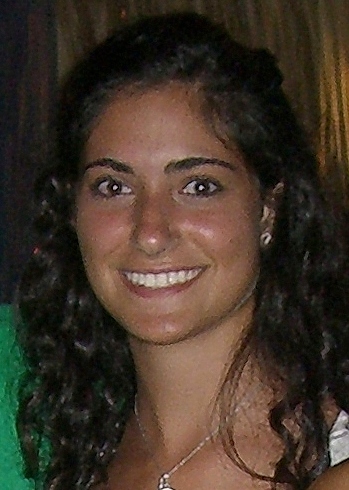Wednesday, January 11, 2023
A 2006 Westfield High grad Reema Samaha was just 18 and a college freshman when she was killed in the April 16, 2007, mass shooting at Virginia Tech. Shortly afterward, her mother called her “our flower picked too soon, our star to wish upon and our angel to guide us.”
And in the years since then, Reema continued guiding her father, Joe Samaha, as he and the other victims’ family members established the Virginia Tech Victims Family Outreach Foundation (VTV). Its goal was to address campus safety and security issues in the tragedy in which 32 people were killed; 17, injured; and many more traumatized.
Samaha was the nonprofit’s president; and, over the years, VTV helped get new laws passed and became the nation’s leading independent advocacy group for campus safety. Later, as VTV’s vice president of Development and Victim-Survivor Advocacy, Samaha helped spearhead the idea of a Virginia Mass Violence Care Fund (VMVCF) to benefit all victims of mass violence in Virginia.
Further underscoring its need was the May 31, 2019, shooting in Virginia Beach. And in January 2022 – at the urging of Samaha, one of his constituents – Sen. Chap Petersen (D-34th) of Fairfax submitted a $10 million budget request to create this fund in the commonwealth.
Ultimately, it wasn’t included in Virginia’s budget, but Samaha, Petersen and VTV kept pushing for it. And last month, their tireless efforts to make the care fund a reality finally paid off when Gov. Glenn Youngkin included the money for it in his new, state budget.
“We [VTV] are grateful to Gov. Youngkin, Atty. Gen. Jason Miyares and Sen. Petersen for the creation of the Mass Violence Care Fund,” said Samaha. “We thank them for listening and understanding and for their empathy. The concept to create such a budget for the VMVCF fund was complex and bipartisan, and it will assist other families and victim-survivors impacted by mass violence in Virginia.”
Samaha hopes the other 49 states will “follow the lead the governor has initiated.” He said those directly injured or traumatized by mass-violence events in Virginia will benefit from the fund, and he explained how it came about.
“As families and survivors of the Virginia Tech shooting began to meet and respond to our 2007 tragedy, we asked two questions,” said Samaha. “We wondered, ‘How do we make our college campuses safer, and how do we assist other families that may have to walk in our shoes someday?’
“Almost 16 years later, we are proud that our advocacy work at VTV Family Outreach Foundation, plus our VTVCare program [our own precursor of the new fund], were able to help breathe life into a Virginia Mass Violence Care Fund – the first of its kind in the nation.”
What they learned from their own experiences after the Virginia Tech massacre, said Samaha, is that “The first two years after a tragedy, people are donating to help the victims and grants come into the various municipalities to establish resiliency centers.
“But typically, in year three, there are no funds left to help people on their lifetime journey. Their ongoing needs include physical injuries and mental trauma, like PTSD, that may arise years later. They need therapy, but their insurance doesn’t cover all of it – and that’s where this new fund comes in.”
Indeed, VTV Co-Presidents Jody McQuade and Jennifer Herbstritt stressed that “Many of us are still seeing therapists and seeking medical treatment for conditions related to the events of April 16, 2007.” Pleased that the care fund was created to be proactive and perpetual, they also expressed their gratitude to the state’s political leaders for “understanding that grief, pain, and trauma are not linear, and most likely will last a lifetime for those that have been impacted by mass shootings and mass violence.”
Now that it’s funded in Virginia’s budget, the VMVCF will kick in three years after a mass-violence event here and pay for victims’ out-of-pocket expenses not covered by insurance. Expenditures and disbursements from the fund will be made by the state treasurer.
The first year’s appropriation will be $10 million taken from the commonwealth’s General Fund and deposited into the Virginia Mass Violence Care Fund. There, it will gain interest – potentially, $400,000 a year – to help with victims’ ongoing needs.
Meanwhile, Samaha never forgets the Virginia Tech victims who were the catalyst for this critical achievement. “It’s the 32 that were killed, and 17, injured, that inspired this work, not just Reema,” he said. “What’s gotten me through is having a purpose – to keep honoring and remembering those who were killed and to do this work in their name.”
As for Petersen, he couldn’t be prouder of all Samaha and his VTV partners have accomplished. “Last year, Joe approached me with the idea of establishing a revolving fund to benefit families whose members were killed or wounded in an incident in which multiple people died,” explained Petersen. “The event at issue at that time was the 2019 shootings in Virginia Beach in which 12 people were killed and many more wounded. Many of these families have been unable to pay bills once their insurance has run out.”
And although his January 2022 budget amendment to create the care fund didn’t succeed, he knew it would have a better chance if either the governor or the House proposed it. And that’s when Samaha’s passion and determination rose to the fore.
“Joe set up countless meetings with the governor’s team and House members, trying to break through,” said Petersen. “And then on Dec. 15, the governor announced that he was establishing the VMVCF, just like Joe had asked, with an initial allocation of $10 million – again, just as we asked. There are a lot of areas in the budget that will be disputed; but this item presented a perfect success for a hardworking, Fairfax County man. Way to go, Joe!”